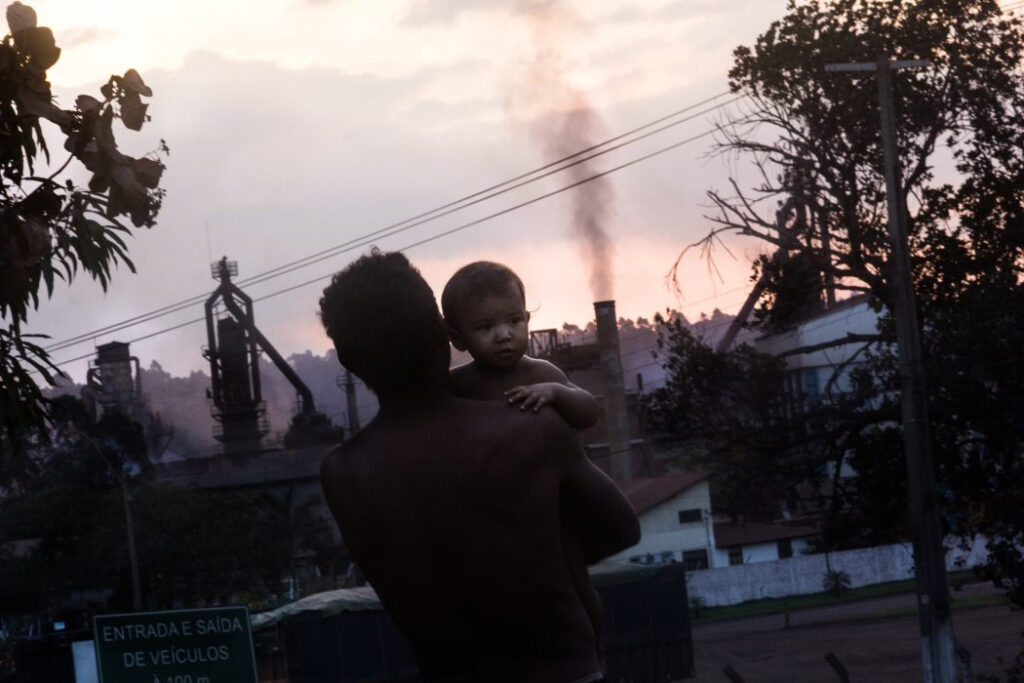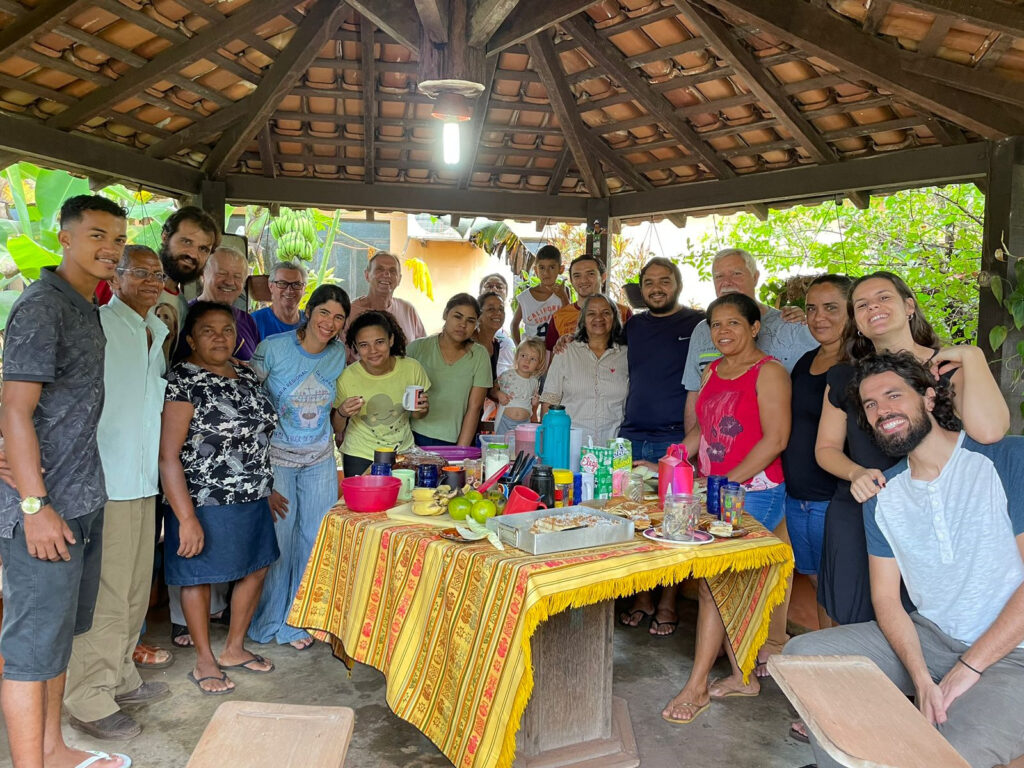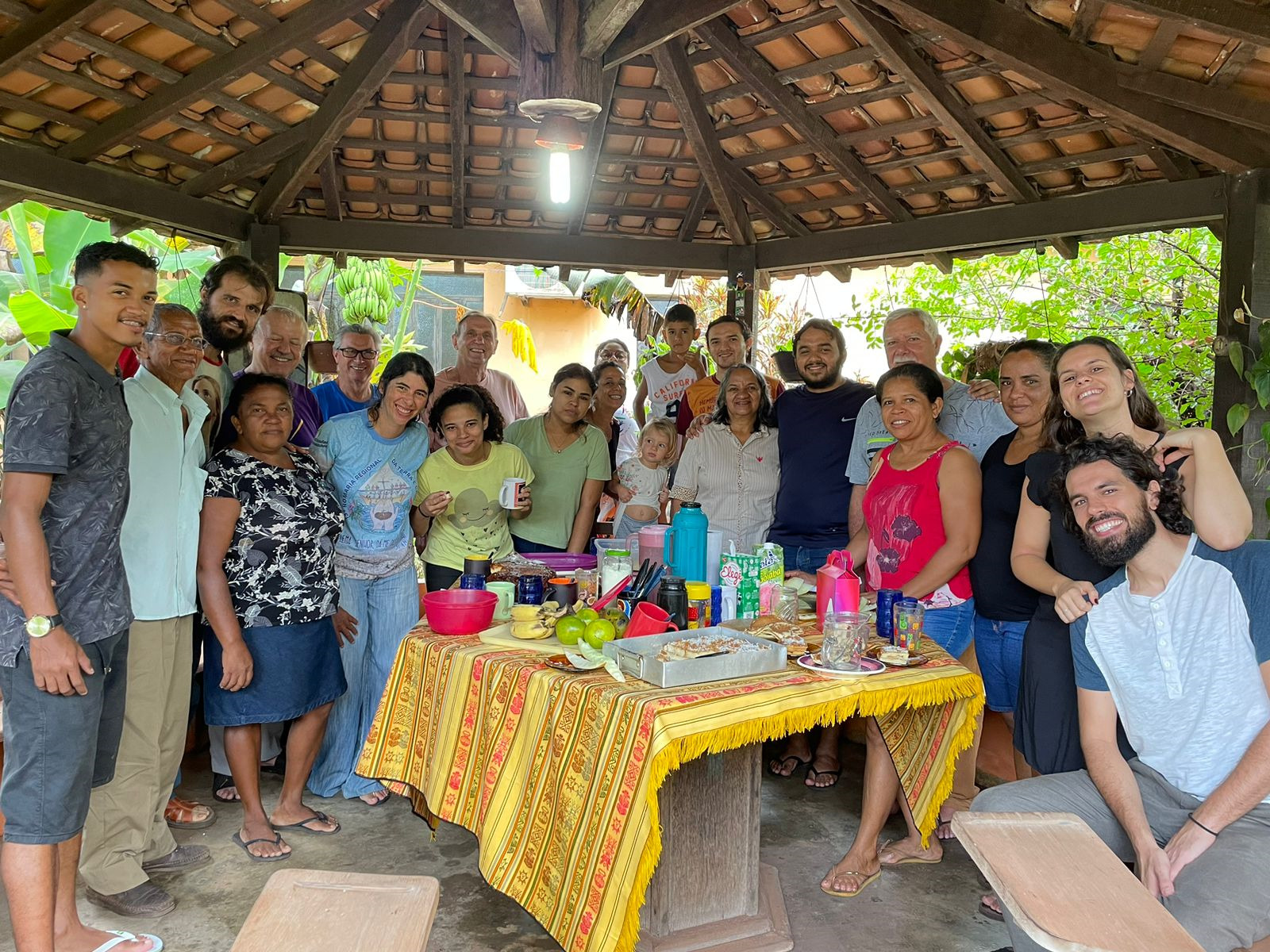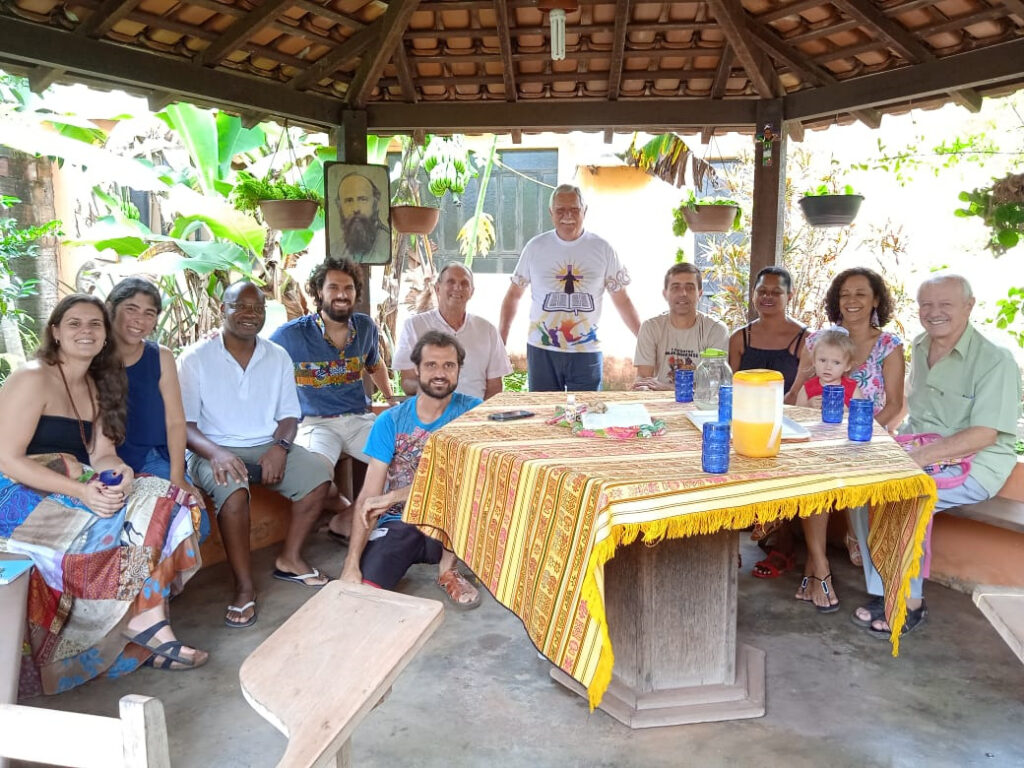PODCAST 2 – BEGINNING WITH SONG “Essa Luta è Nossa Essa Luta è do pouvo…”
Hi, we are Anna and Gabriel, and this is Ciranda, the podcast about our mission experience in Brazil. In which we try to bring you into the everyday life experiences and choices of those who live in this part of the world.
Edvar Dantas Cardeal lives in a small village, on the outskirts of Açailândia, in the hinterland of Maranhão. Unfortunately, he still does not own his history, because he lives where no one would want to live. When he arrived in Piquiá, he really liked the name of the place, an homage to one of the region’s largest trees with delicious fruit, The Piqui.
The community of Piquiá de Baixo (so called because it is located in the area lower than the next neighborhood) was created in the 1970s, when this part of the region was still called “the gates of the amazonia,” rich in vegetation. People planted and fished from the river that kissed the banks of the community. It was a little paradise in the memories of the inhabitants.
Then in the 1980s, the “development” came, which even changed the name of the village to “Pequiá,” an acronym for “PetroQuímico Açailândia.” Açailândia itself, or “Açaí City,” another tasty fruit typical of the region, has lost the meaning of its name, where progress and respect for life cannot coexist.
Next to Edvar’s house were installed 14 steel furnaces, a thermal power plant, and, to top it off, a steel mill. The people of Piquiá did not even know what a steel plant was and what this would mean for their health, their lives, and that they would become little more than gears in this industrial machine. Companies came with manifestos of jobs, jobs for all, but the intent was always and only to settle there making the most at the least possible price, deceiving the community and destroying the way of life of those families.

It is 2005, Edvar heads to the small house of the Piquiá di Baixo inhabitants’ association of which he is a member, it might seem like just another day but perhaps he does not know that from that day began the real struggle and resistance of his community! He was tired of seeing iron dust fall from the sky and settle on every surface he finds. He sees friends and relatives increasingly starting to get sick, strong respiratory complications, skin infections, constant headaches, intestinal problems, exhaustion…his much-loved village was falling apart more and more.
Edvar waited 60 days before he was able to pick up a pen and a blank sheet of paper, he does not know how to start writing this letter, how to use the best words to tell about his community, but he knows for sure to whom it will be directed: To President Luiz Inácio Lula da Silva!
Soon after time, the response arrived, with directions pointing to routes and public bodies that the community should seek out. The people of Piquiá soon realized that alone, though many, they would not be able to fight against a boulder the size of a steel mill, so little by little they managed to weave around them a strong network of allies, who took the community’s grievances and demands to international institutions, such as the UN. Thus the struggle that was started by Edvar became everyone’s, the community of Comboni Fathers and the associations that over time joined in this great resistance.
Of all the mobilizations carried out by the community over the years, some were very notable, such as the one that took place in December 2011, when hundreds of residents marched and blocked the super road that connects Açailândia to São Luís. The blockade lasted longer than 4 hours in a prolonged protest with burning tires. Another noteworthy protest was the one that forced the Steel mills to pay for expropriation, when residents made a real cooperative effort and, divided into shifts, closed the entrance and exit gates of the industries for 30 hours.
“We must do the possible in the impossible” was what Edvar repeated to his people in Piquiá, and this struggle, of all people, paid off. Through all this mobilization, the approval of the urban project for the new neighborhood was obtained on December 31, 2015. Due to bureaucracy, which is one of the tools of oppression of the poor, the resources to start the work were not made available until November 2018, when work began on a new Neighborhood: “PIQUIA DA CONQUISTA!
Edvar Dantas Cardeal died on January 23, 2020, a victim of the same disease he was fighting. His lungs were contaminated with iron dust, and his struggle ended after more than a month in the intensive care unit, due to respiratory failure and other complications.
Edvar Dantas, who started this struggle, will never see its end, but his ideas and hope live on in the new people of Piquiá da Comquista!

BATE PAPO
The struggle, therefore, is still ongoing and its outcome is open to debate.
The community’s achievements have been significant, especially considering the disproportion in scale between the local community and the national/global industry. Perhaps this is why the claims of the Piquiá de Baixo Community transcend the local struggle and become a larger banner that exposes the other side of development agendas. At the same time that it reaches international levels (such as the UN), this struggle takes place on the ground of the community, in direct human relations, as so well expressed in the letter that Mr. Edvard wrote to his nephew Moisés: The beauty of this battle is that we do not get tired, and when there is a defeat we react with more enthusiasm and conviction: it is very clear that we are victims, there is an obvious injustice! The law cannot be wrong: we will be compensated! Sometimes even grandparents delude themselves and dream like an inexperienced young person…. After all, it is hope that sustains us. But I learned, Moses, that hope is a child who needs two older sisters: patience and wisdom.
“ONE DAY, YOU NEW GENERATIONS, WILL TELL THIS STORY IN THE NEW NEIGHBORHOOD: PIQUIA DA CONQUISTA!”
This is the ciranda song; it is danced in a circle, each member hugging his or her neighbors and moving to the rhythm by stamping their feet loudly. This song is a dance related to the Brazilian folk tradition.
YOURS EDVAR DANTAS, PRESENT!
Anna and Gabrielle, CLM in Brazil





